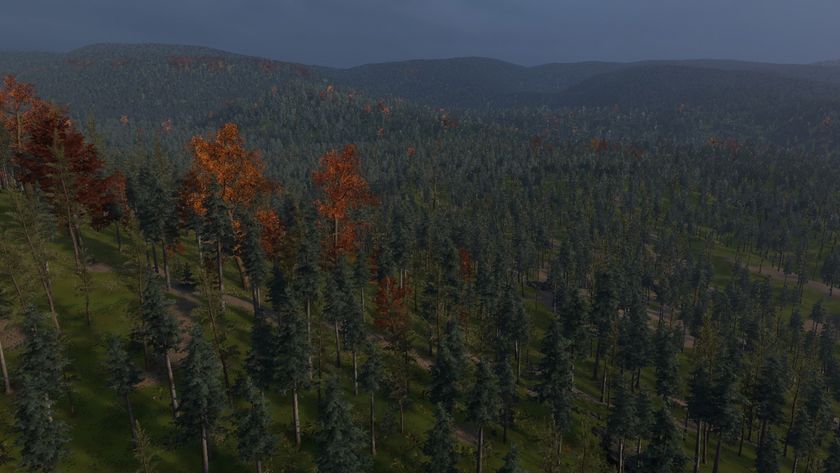The rise (and fall) of premium DLC: Why publishers are finding new ways to charge for games
Does free content for Doom signal a change of heart from publishers?
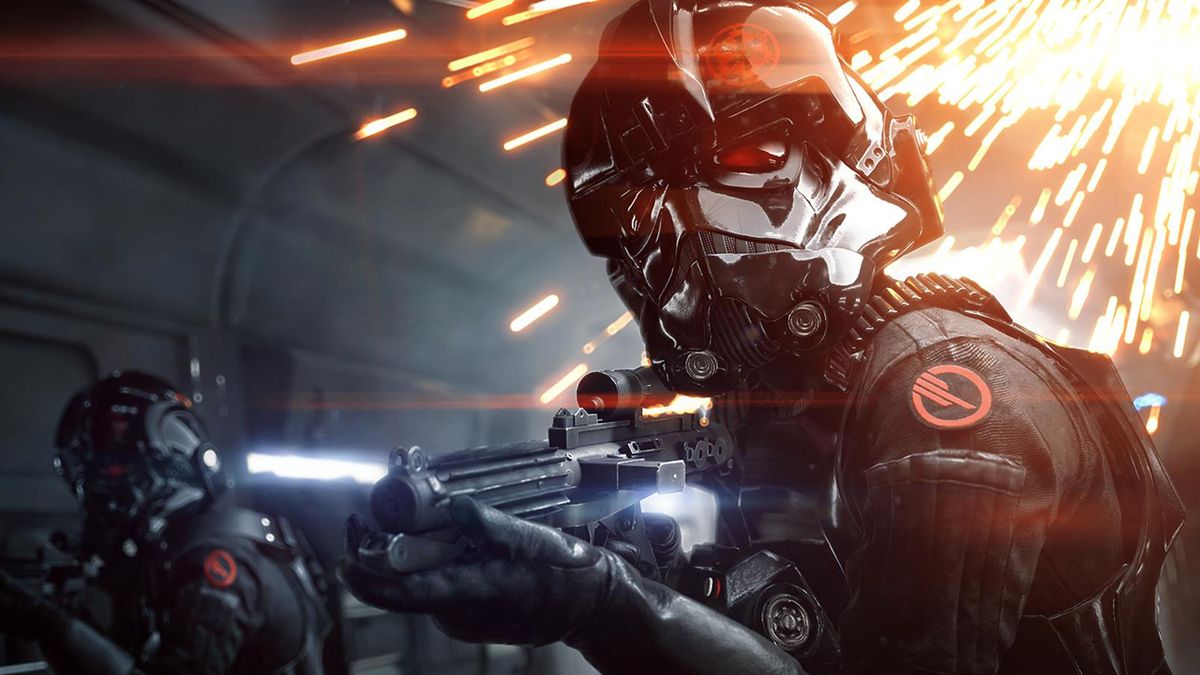
Doom publisher, Bethesda, recently announced - in an unexpected act of kindness - that season pass content (previously valued at $35 / £30) would be unlocked to all players for free. Marty Stratton, game director for Doom, said in the neatly dubbed Update 6.66, that the team would be “retiring” the season pass, allowing all players to access new maps and demons. This continues Bethesda’s growing trend of gifting free content to Doom players, with two substantial SnapMap expansions and Arcade Mode for the campaign released last year.
The hot-as-hell announcement also comes with a digital price drop to £11.99 and free-play weekends for non-owners. Following on from EA’s big announcement of free future content packs for Star Wars Battlefront 2, why is it that publishers have decided to drop premium packs? And more importantly, what are they replacing them with?
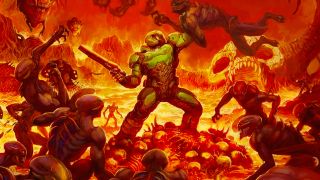
It has been over 11 years since TES: Oblivion’s notoriously bad Horse Armor DLC was released; it was particularly significant being one of the first pieces of DLC for the then-new generation of consoles, but also important as a demonstration of how poor paid content could be. The DLC was wholly aesthetic, which meant it had no tangible benefit to the player, and cost 200 Microsoft points. That’s about £1.70 real money. Compare this early attempt at DLC from 2006 Bethesda to the Bethesda of today (and its treatment of Doom), and it’s clear that the company has changed the way it handles things.
Bethesda’s vice president of PR and marketing, Pete Hines, explained in an interview back in 2012 that the negative reaction to Horse Armor wasn’t just about the price. He said, “It was more of a lesson: when you're going to ask somebody to pay X, do they feel like they're getting Y in exchange? If they don't feel like they're getting their money's worth, they're going to bitch."

Here we are in 2017, publishers are still exploring new ways to charge more for their games. Back then, vanity add-ons for your horse cost 200 Microsoft points. These days season passes cost up to £39.99 (Battlefield 1). Meanwhile, the originator of Horse Armor is giving huge swathes of stuff away free, and there are a ton of other content models in between. Clearly, things are in a major state of flux at the moment. So, what’s next?
Galactic gluttony
In May, Forbes reported that the then-upcoming Fire Emblem: Shadow of Valentia Echoes game for the Nintendo 3DS would feature DLC that costs more than the actual game itself. The season pass retails for £5 more than the price of the base game, which costs £40. The DLC, according to the official Fire Emblem DLC page, contains more gameplay features in the form of exclusive characters unplayable in the main game, added dungeons and even plot details that are sold separately as a prologue pack. It’s understandable to see why some people might be sceptical about it…
An evaluation of Reddit gaming threads makes it obvious that gamers are particularly divided about DLC. The consensus is that DLC can be good or bad, depending on the quality of the content, the price tag and whether a marketing plan (to strip content and sell it separately) was put in place before the game’s release.
Sign up to the GamesRadar+ Newsletter
Weekly digests, tales from the communities you love, and more
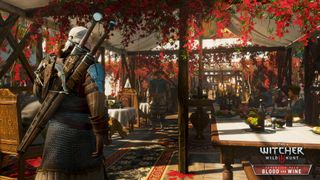
One Reddit user, named Mike*, said that ‘good’ DLC can be valued on its ability to: “expand the experience of the game in a worthy way parallel to the price, or it can be good in the sense that it’s cosmetic and therefore it doesn’t reduce any enjoyment from the base game experience.” The Witcher 3’s £20 season pass has been hailed as ‘good’ DLC, offering one of the best value-for-money content packs available. The final Blood and Wine expansion was worth the price tag on its own; fans were impressed by the longevity and quality of the expansion.
Such stand-out expansions might unfairly raise expectations for future DLC content to follow, but ‘poor’ content is still an issue. ‘Bad’ DLC is portrayed as over-priced, minimal-benefit content, or material stripped from the base game to be sold on its own later.
And value isn’t the only issue. There’s also the matter of how DLC can split communities into the haves and have-nots in online-focused games. “DLC for the game Destiny, such as The Dark Below, seemed to be tacked-on content that should have been part of the main game experience. People who refused to buy it suddenly found themselves degraded and lesser than paying players, with access to base game experiences even being locked down. This is bad DLC,” says fellow Redditer, Jane.

But while there is a fair degree of subjectivity in discussion of what constitutes good and bad DLC, what isn’t subjective is the numbers involved with the development and sales of games, which make a very clear case that paid downloadable content, in some form, is a necessary part of the modern industry.
A new hope…
Without a flowing money stream, how can a publisher of a AAA game, which cost millions of dollars, and years of time in development, justify the continuation of spending more money on keeping the game alive? DLC and season passes are a method of balancing service costs while maintaining profits. Grand Theft Auto 5, for example, cost £170 million to develop. A recent SuperData report said that the hugely popular game has reaped a total revenue of over £1 billion since 2013, 78% of that coming from extra content distributed via GTA Online.
Titanfall 2, by contrast, comes as one of 2016’s AAA financial disappointments. EA hasn’t officially released the development cost of the sequel, but the first Titanfall game’s cost was estimated to be £50 to £100 million. Following positive feedback for Titanfall, it’s likely that Titanfall 2 had an even larger budget. In fact it’s almost guaranteed, given that the sequel brought the full-sized, single-player campaign that the original lacked. Unfortunately, sales were low. Failing to meet expectations, it’s surprising that EA didn’t attempt to make back some of the cost charging for downloadable content. But, perhaps in a move to prioritise community unity and a healthy long-term fanbase, the publisher made it all free.
Clearly, the AAA model has challenges, however you try to approach it.

Gears of War creator, Cliff Bleszinski, said at this year’s Reboot Develop conference that the AAA model is nearly “unsustainable, unless you’re an Activision, 2K or a Sony”. Bleszinski emphasised the phenomenal cost of producing and marketing these blockbuster games, highlighting the importance of compensating these costs with a high retail price and further content investments down the line.
Bleszinski argues that the £45 ($60) price tag of AAA games is still a lot of money to ask people for, especially with multiple AAA games released each year. He says instead, that developers should aim for the 'Double-A'; games that look and play great, but “pick their battles in terms of budgeting and marketing”. He highlights games such as Rocket League, Warframe and Rust, which have grown to be successful without the AAA budget. His own new game, the excellent LawBreakers, exhibits all of these qualities throughout, and is currently working to capitalise on great early reviews through word-of-mouth message-spreading, Twitch integration, and a heavy, connected focus on looking after its community. Money-wise, LawBreakers is selling at a reduced, £25 price tag with optional, cosmetic micro-transactions. It seems a wise balance, but only time will tell how things work out in the long-term.

Notwithstanding Bleszinski’s concerns about an unhealthy, mainstream games market, significant changes to the AAA gaming business models are starting to take shape. Unless you’ve been sheltering yourself from the endless bombardment of reveal trailers and announcements this summer, you’ll know that Star Wars Battlefront 2 will make major changes to EA’s traditional season pass system.
2015’s hugely-anticipated reboot of Star Wars Battlefront has been paraded across the unsettled lands of the internet as one of the worst examples of reserving DLC to sell to fans post-release. Lacking any real substantial single-player gameplay besides a handful of ten-minute missions, and packing a disappointing volume of online content (From a publisher perspective, Battlefield 4 featured 77 weapons and ten maps in its 2013 vanilla form, Battlefront, EA and DICE’s next FPS game, had 11 vanilla weapons and 12 maps, with only four of those playable on its main game mode Walker Assault) the game has been slammed by players for its content plan. A £39.99 season pass later filled out the game to a respectable level - actually adding more content than appeared on the disc - but the original release sold for £41.99 itself. That’s a hell of a price to pay for the complete experience.
Mashable reports that Bernd Diemer, Battlefront 2’s creative director, has stated that the studio is trying something different “that will allow you to play longer and be more invested in the game without having a fragmented community.”

The original Battlefront quickly lost the faith of its fans, and with it, its player base. Player counts show that 34,000 people are still playing Battlefield 4 across all platforms, Battlefront is struggling at 14,500 players.
The new model is set to distribute all future content packs for free. Instead, loot boxes will take the place of paid DLC - notably, a similar system to that being used by Bleszinski’s LawBreakers. It looks like EA and DICE have listened to criticism and created an alternative model to keep everyone banded together, without pressure to buy. After all, a connected player base is healthy for business, and if players feel attached to a game, and not pushed to purchase, they’re perhaps more likely to want to. GTA 5’s online mode, as mentioned before, is proof of that. When you assess the beyond-belief numbers involved with producing such a game, optional loot payments are hardly a heavy cost to pay as a gamer. Though it’s perhaps also notable that without the financial safety net of a high-cost season pass, Battlefront 2 will retail for £54.99 (£59.99 digitally), £12 up from its predecessor.
Clearly, season passes and DLC content aren’t going away any time soon. A recent report by SuperData revealed that DLC and micro-transactions would make up more than 50% of digital console revenue for 2017, further supporting the importance of expansions in the vitality of game developers and publishers. EA’s fiscal year for 2016 showed that it sold a total worth of £920 million in DLC, a rise of 13% from 2015. In EA’s case, it made 59% of total net sales, which amounted to £3.7 billion. Ubisoft by comparison, made £650 million in digital revenue, representing 50% of its total sales, up from 32% in 2015. Activision holds position at the top with a phenomenal £3.75 billion in digital revenue, 74% of the £5 billion total revenue in 2016.

Tea and pasty haven Greggs saw sales reach £894 million in 2016, if you’re curious of that comparison.
The dramatic shift away from a traditional season pass model marks a potentially seismic shake up between players and publishers. Though it’s also worth noting that the season pass itself has only been traditional for the last couple of years, being just the latest in a string of reactionary reworks of the paid expansion system seen over the last few decades. We’re still very much in the period of kicking the tyres and seeing what works. But while there’s still no hard and fast consensus yet, neither is there any underestimating how significant the business of downloadable content is - financial reports are evidence of that - so it’s important to analyse what new methods will be introduced to the gaming world in order to optimise sustainability for the long-term.
Publishers are still learning new ways to offer services that can be considered a fair deal and benefit the player, as well as themselves. There’s been no one, correct answer yet, but perhaps there can be no such thing. Regardless, things are improving, lessons are being learned, new things are being tried, and surely that’s as important as anything. Poor quality downloadable content has come and gone throughout the years. ‘Good’ content has become understood, and increased in frequency. But there are always more factors to consider than a simple question of quality vs. cost, and that more nuanced thinking seems to be informing contemporary initiatives. If the financial practicalities work out, it looks like free expansions packs, strong communities, enthused, united player-bases, and an emphasis on (willingly purchased) micro-transaction loot boxes may be the next big step. For now, at least…
*Names of users have been changed to protect the privacy of individuals.

This weird WarioWare-like's demo got thousands of positive Steam reviews, and now its Kickstarter's $40,000 goal has been smashed 11 times over
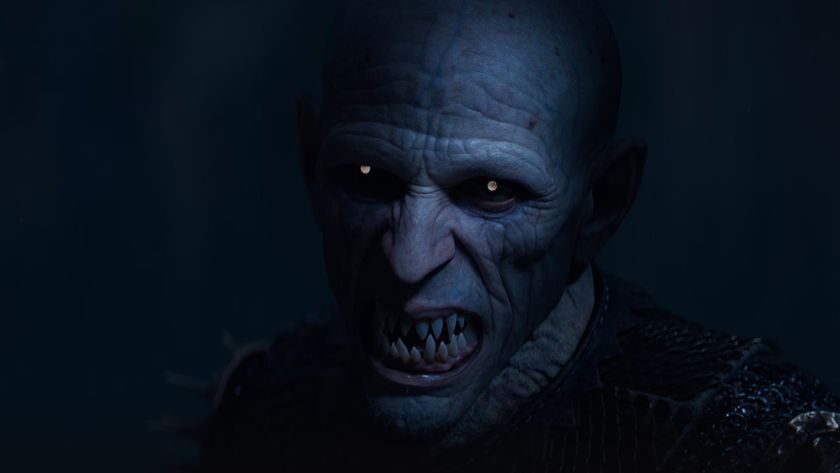
Former CDPR lead says "experimental" new open world vampire RPG The Blood of Dawnwalker will "push the genre forward" a lot like The Witcher 3: "The risk is worth the reward"
Most Popular






